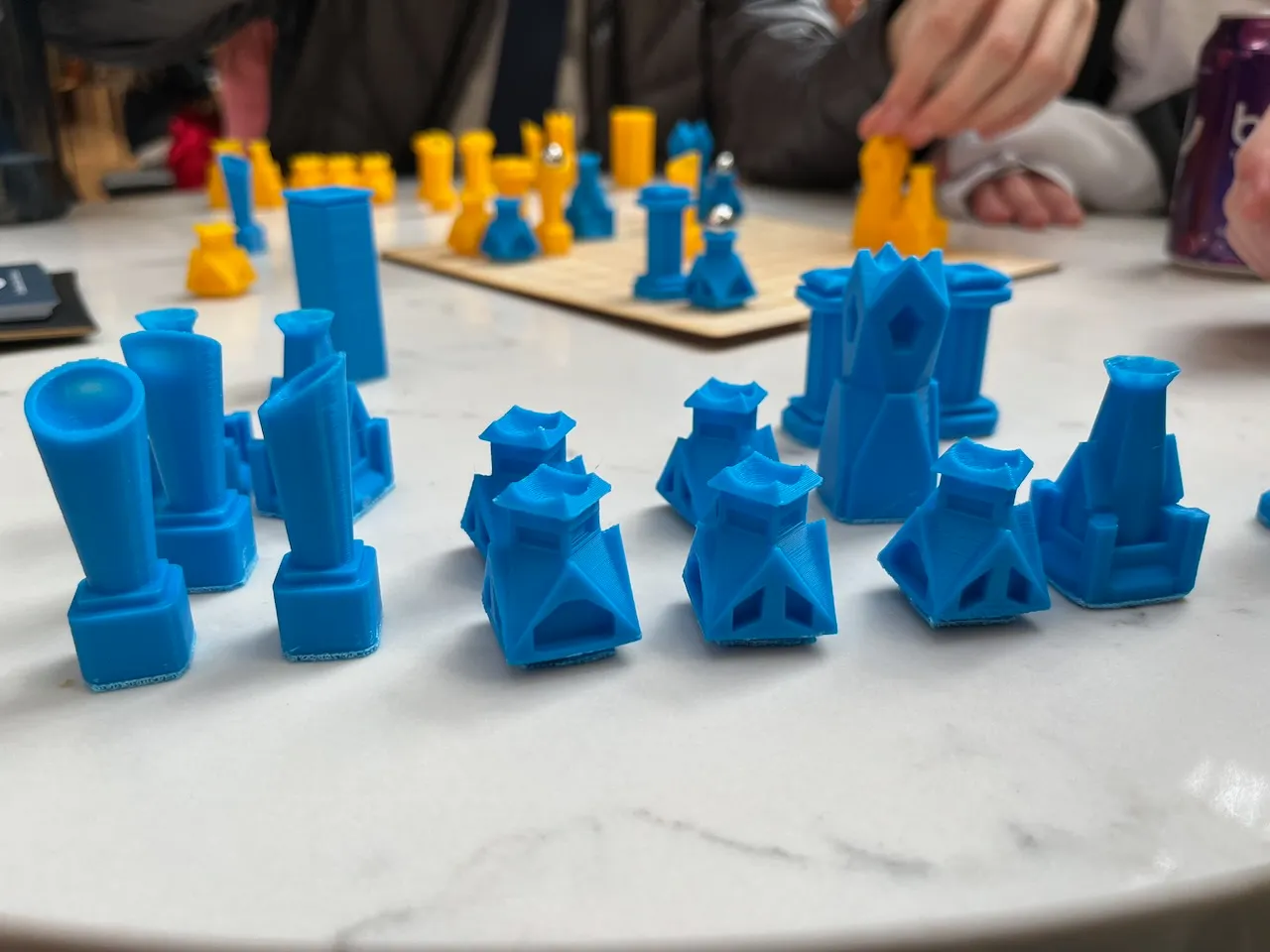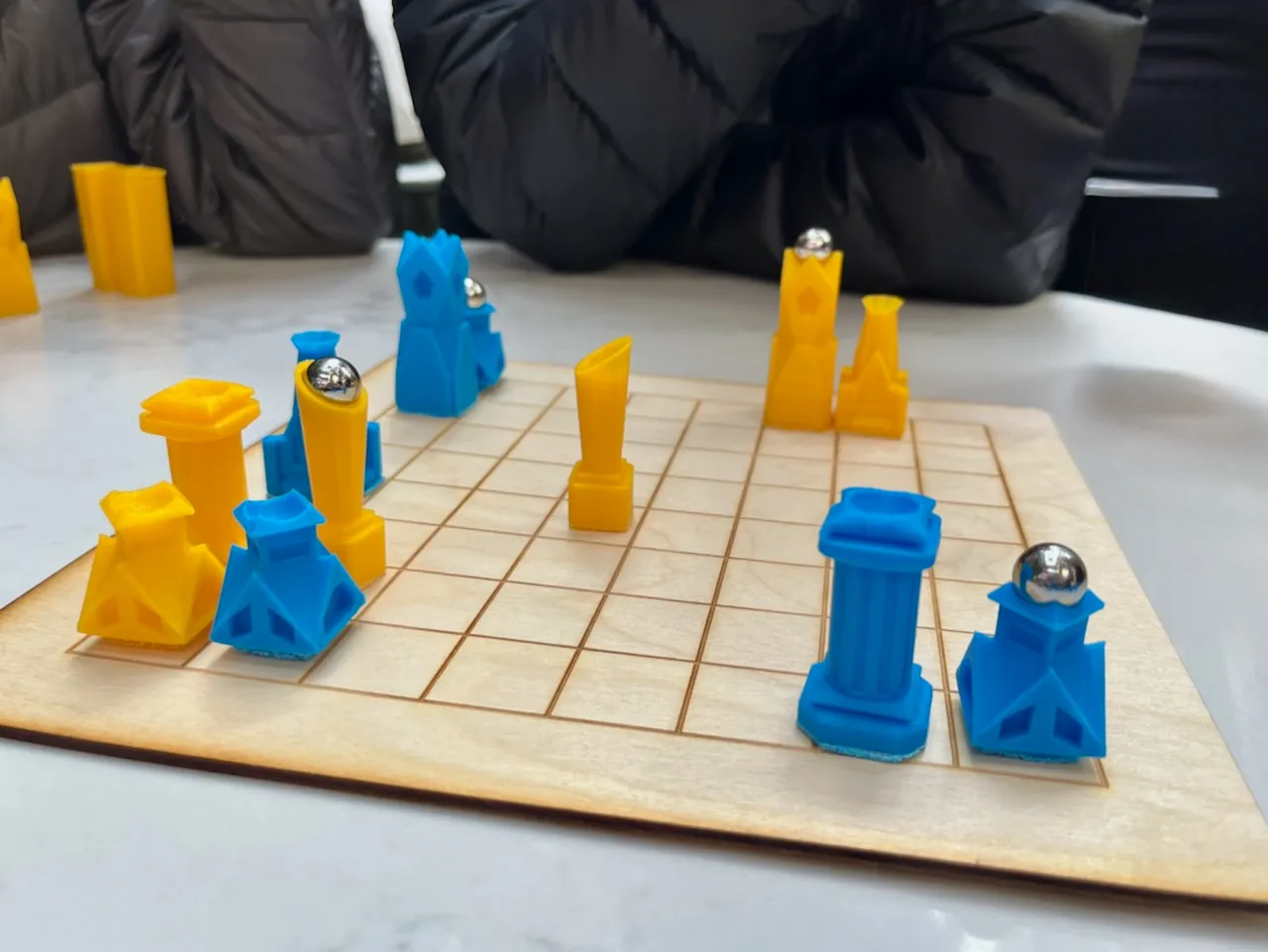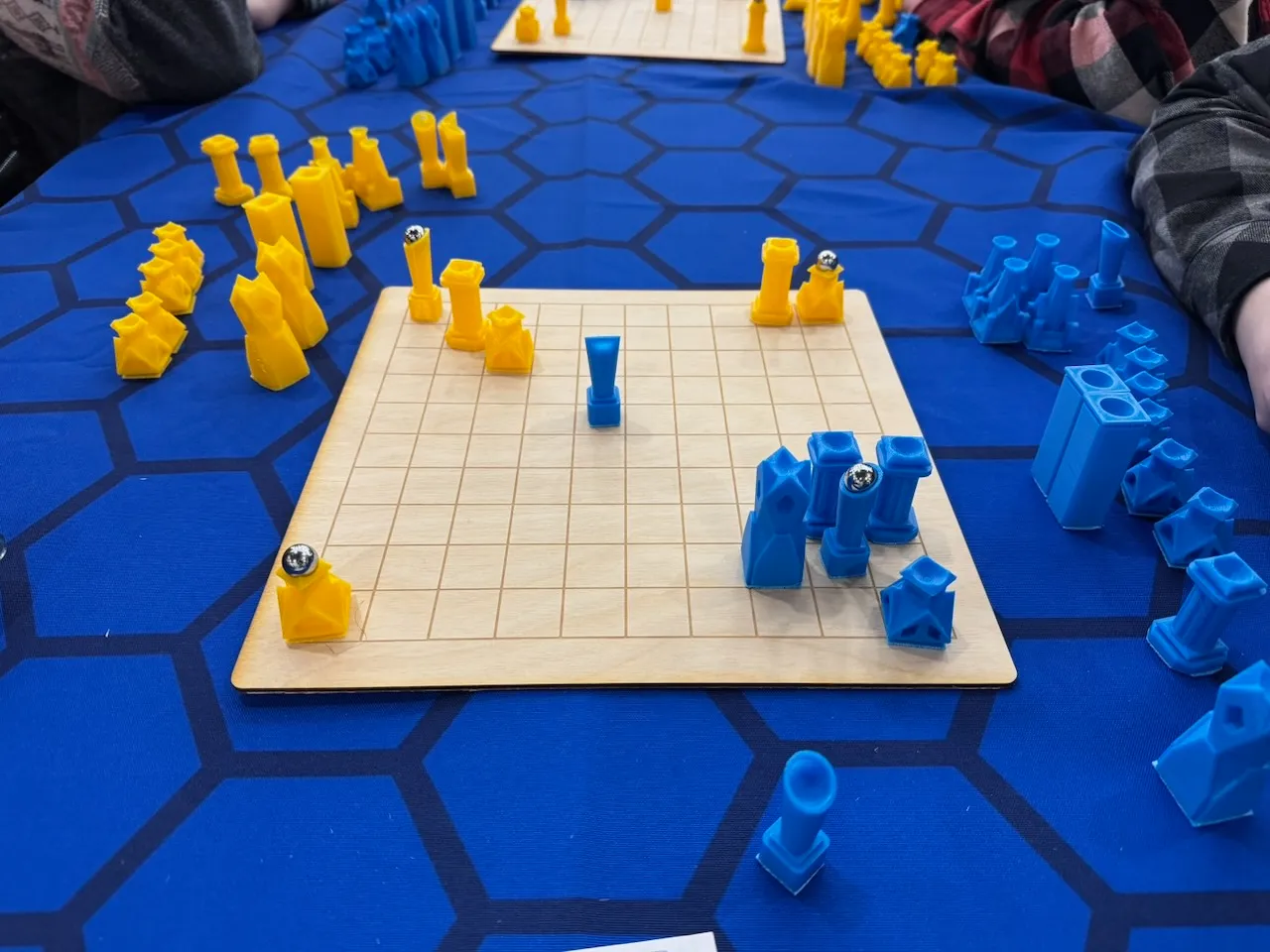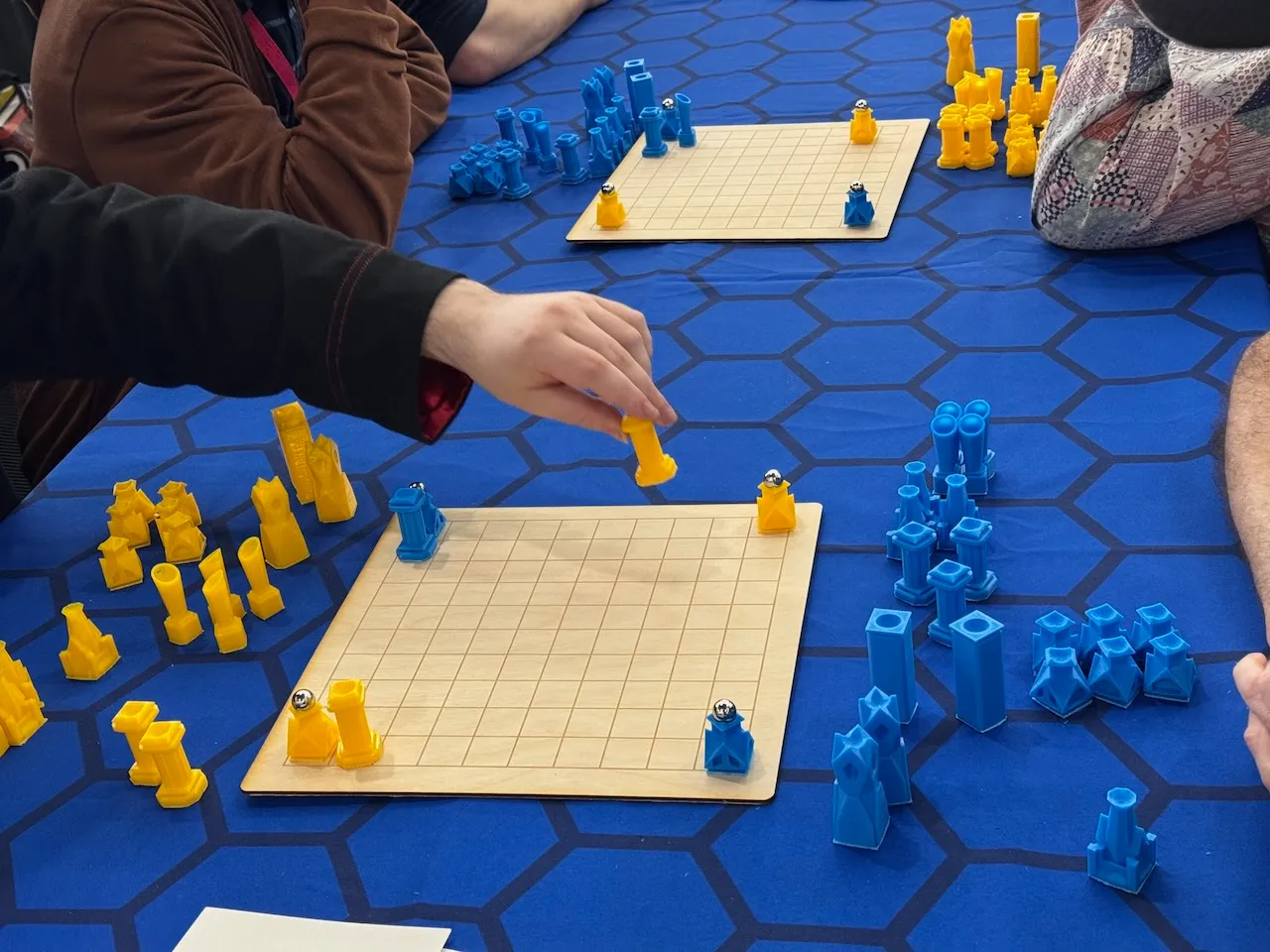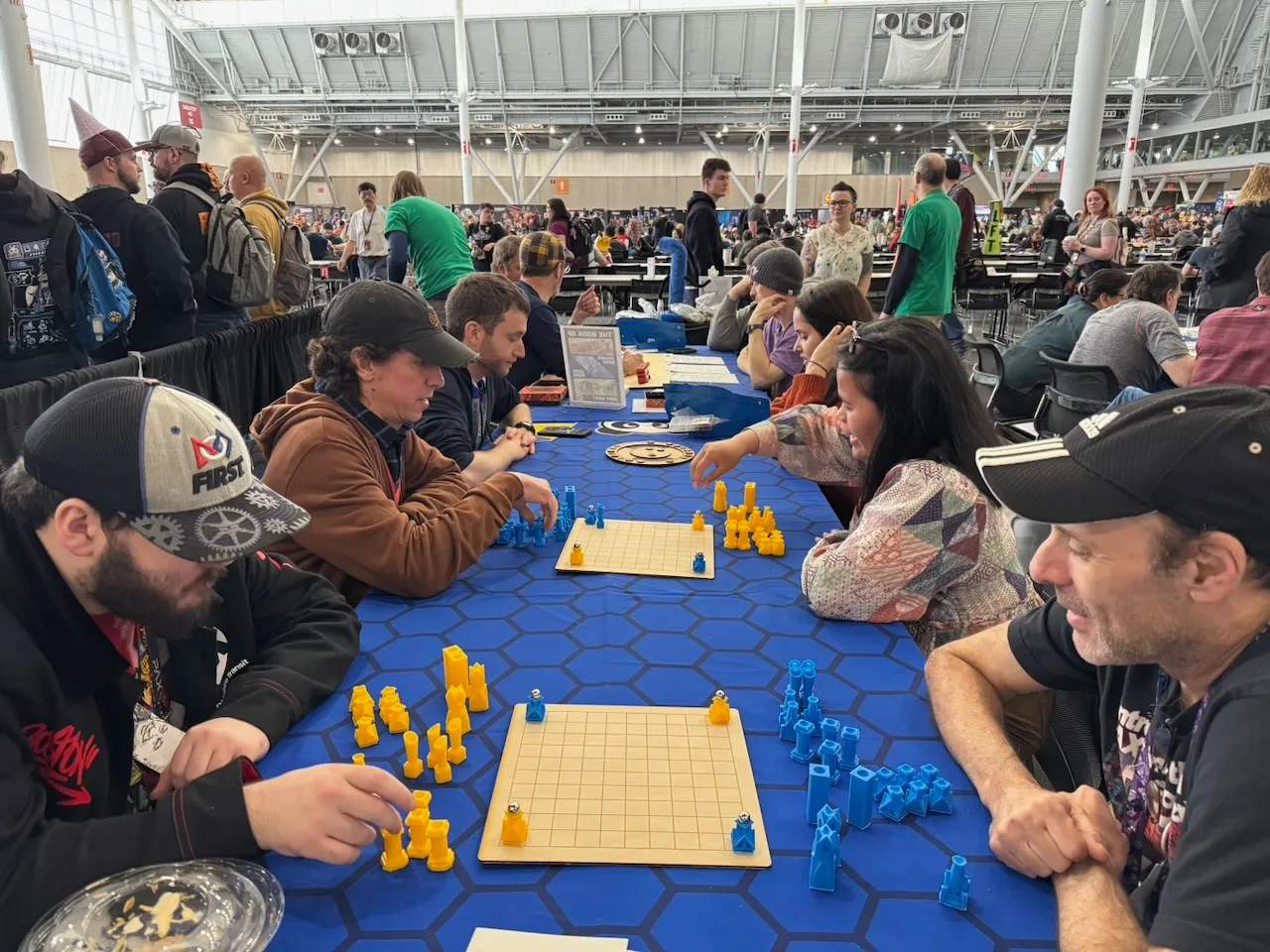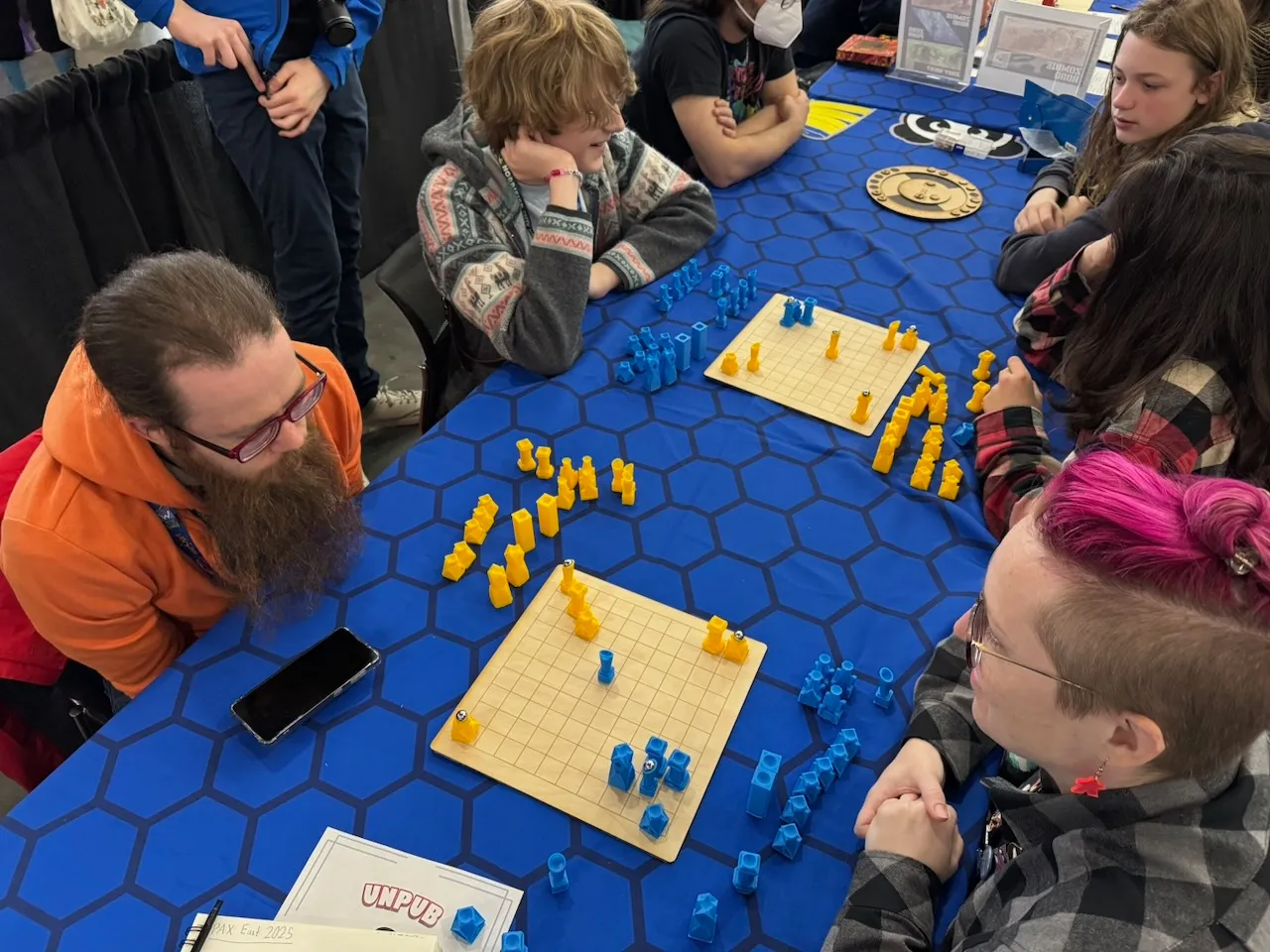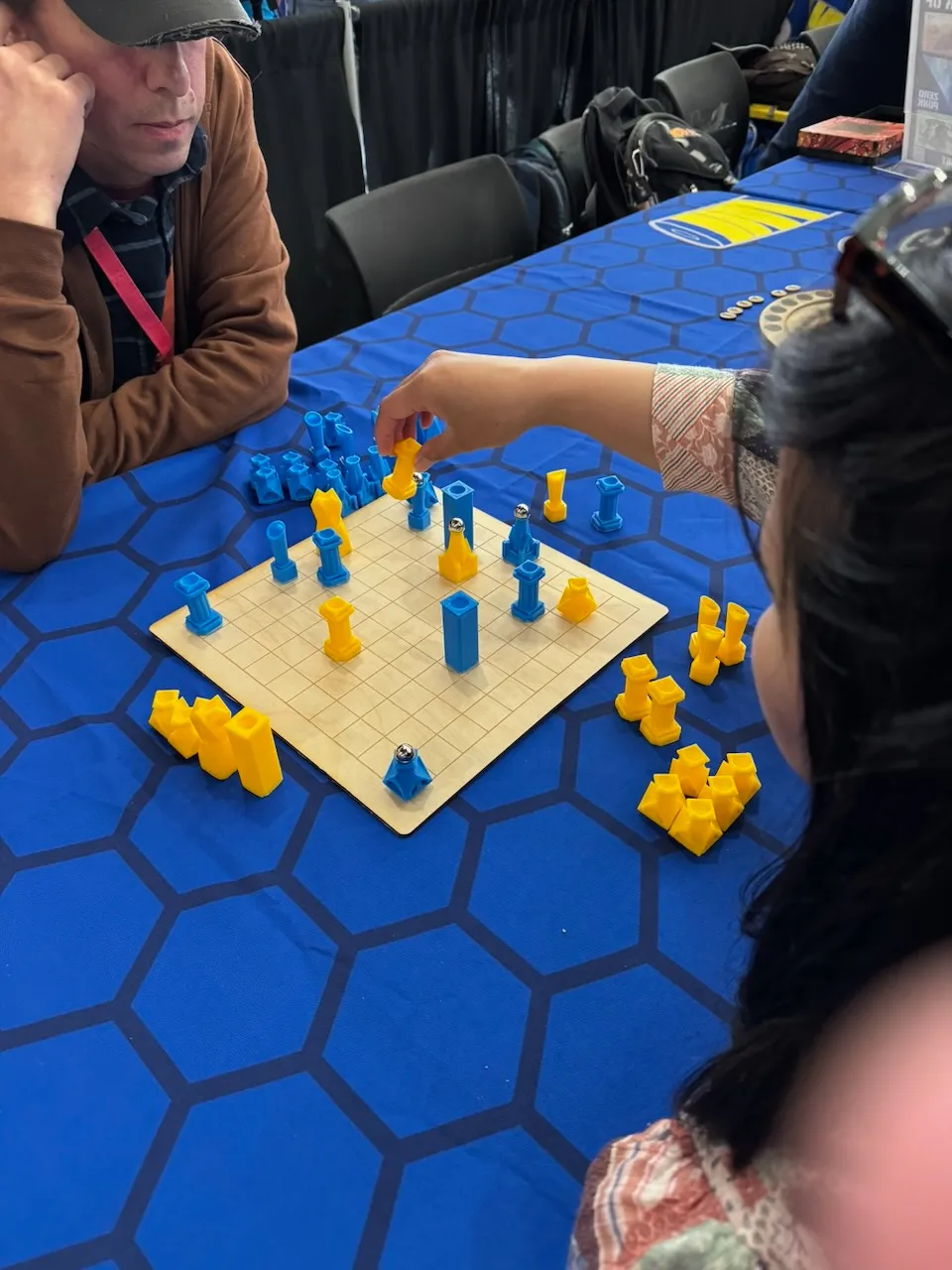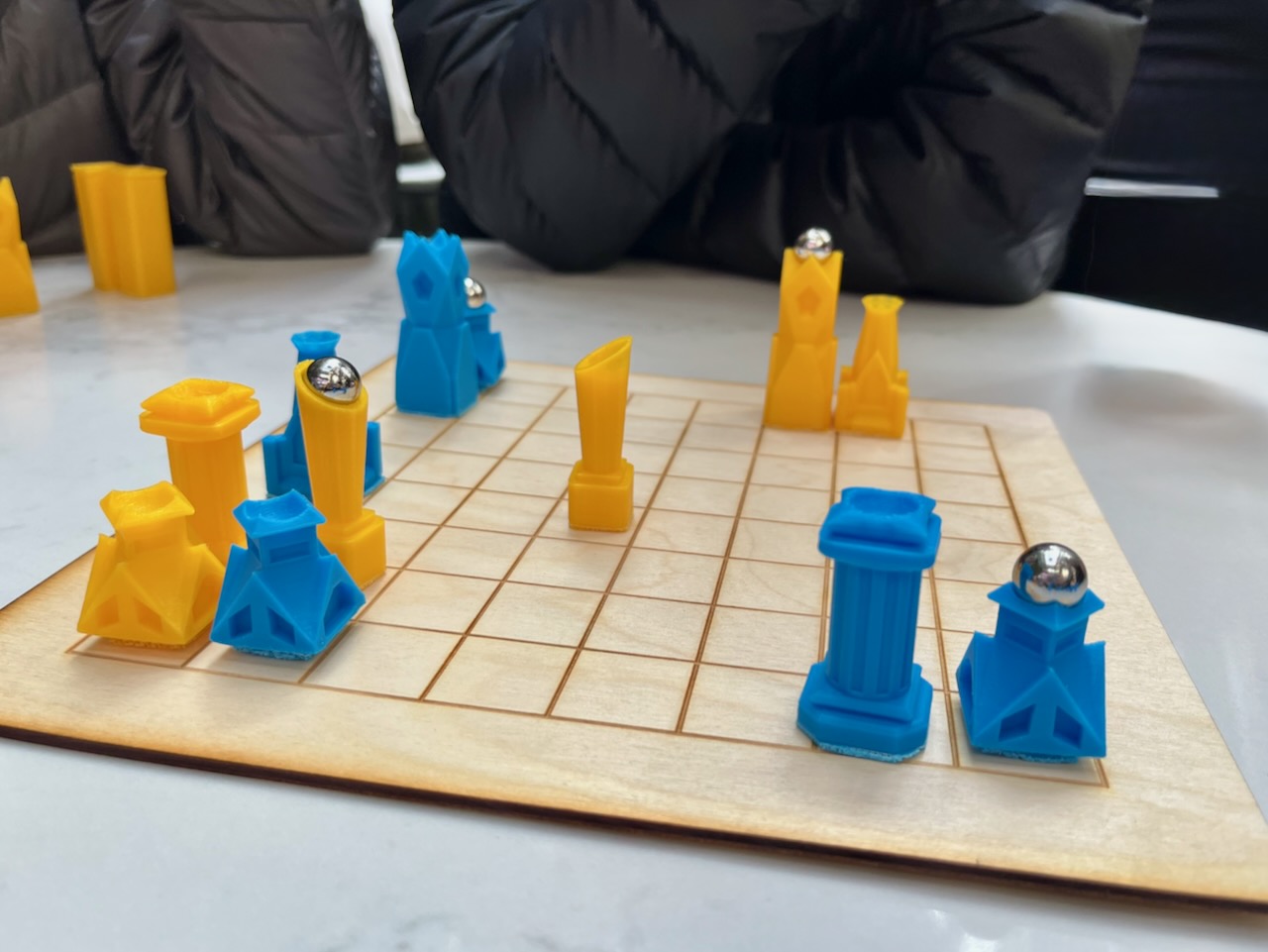Overview
Rendezvous is a two player abstract strategy game where two players compete to connect, or rendezvous, two marbles under the possession of two of their pieces. Rendezvous is played on a 10x10 grid of squares, with each player starting with two pieces under diagonally across the board from each other, each with a marble.
From there, players expand their influence over the board by placing pieces anywhere their existing pieces could currently move, one at a time. Each piece can also carry a marble and pass it to other pieces, with the goal of the game being to pass a marble to another of your pieces with a marble.
But that’s not all! In order to win the game, you must have at least two of the four marbles under your control, and your opponent will likely constantly be pressuring your position, ensuring that remaining idle in any one area will be punished. If one player ever gains control of three or more of the marbles, it becomes impossible for the other player to win until they regain control of two of the marbles, since they’re unable to complete a pass.
Rendezvous regularly creates incredibly complex situations. A random pause in the middle of a game with a friend and some quick analysis showed that, in the middle of a regular game, a player can easily have over 360 possible moves to choose from, or ten times that of chess.
That’s why every single Rendezvous match I’ve played or watched has been completely different from each other match. There are just so many opportunities during each game, and because pieces are almost always being added to the board, a seemingly hopeless situation can be turned into a win over the course of a couple clever moves.
I’m relatively good at Endless, and I’m only ever beaten now by a talented playtester or player who’s been with me from the beginning. But when it comes to Rendezvous, I’ve lost significantly more games than I’ve won, because every single game a new playtester comes up with a new strategy or formation I’ve never seen before to absolutely pummel my hopes and dreams of finally winning a match.
Video Explanation
Playtesting
Rendezvous has been played by a wide audience, and it’s been received very well by every age group between the ages of seven to seventy. It is a good deal more complicated (roughly 30 times the potential moves per round) than Endless, and playtesters who’ve sought a steeper learning curve have loved it! Games, on average, take around thirty minutes to an hour, depending on how long players take to analyze their options.
I’ve tested Rendezvous at a variety of locations, and that playtesting has helped me make some fantastic changes to the game!
A short list of the events it’s been to:
- PAX East
- BOINGA
- Several playtesting nights at Omar’s World of Comics
- An all-day playtest sponsored by the Game Makers Guild
And, of course, a bunch of smaller playtests with friends, family, and associates!
I’m looking forward to seeing where Rendezvous will head next! It’s been both challenging and extremely rewarding to develop thus far, and I’m very happy with the state it’s ended up in!
